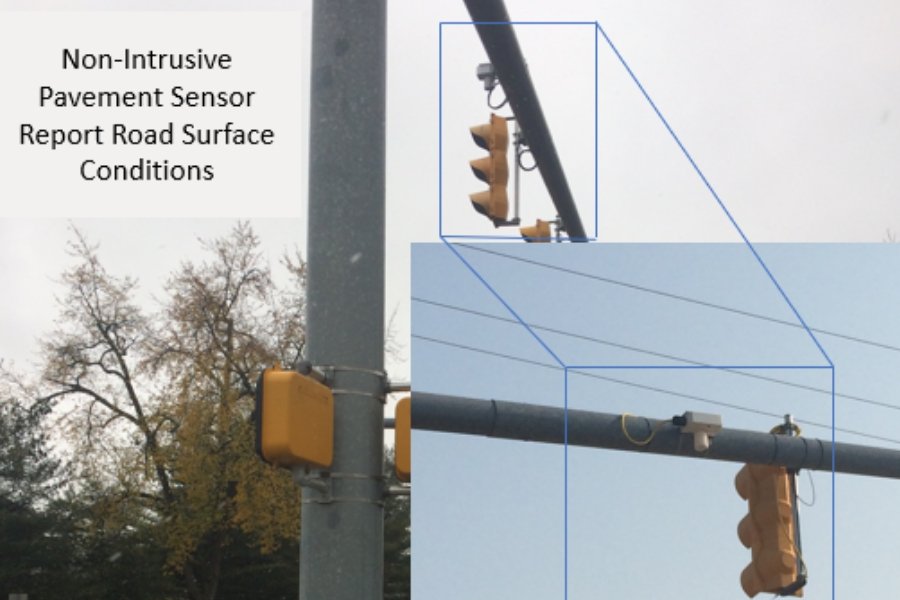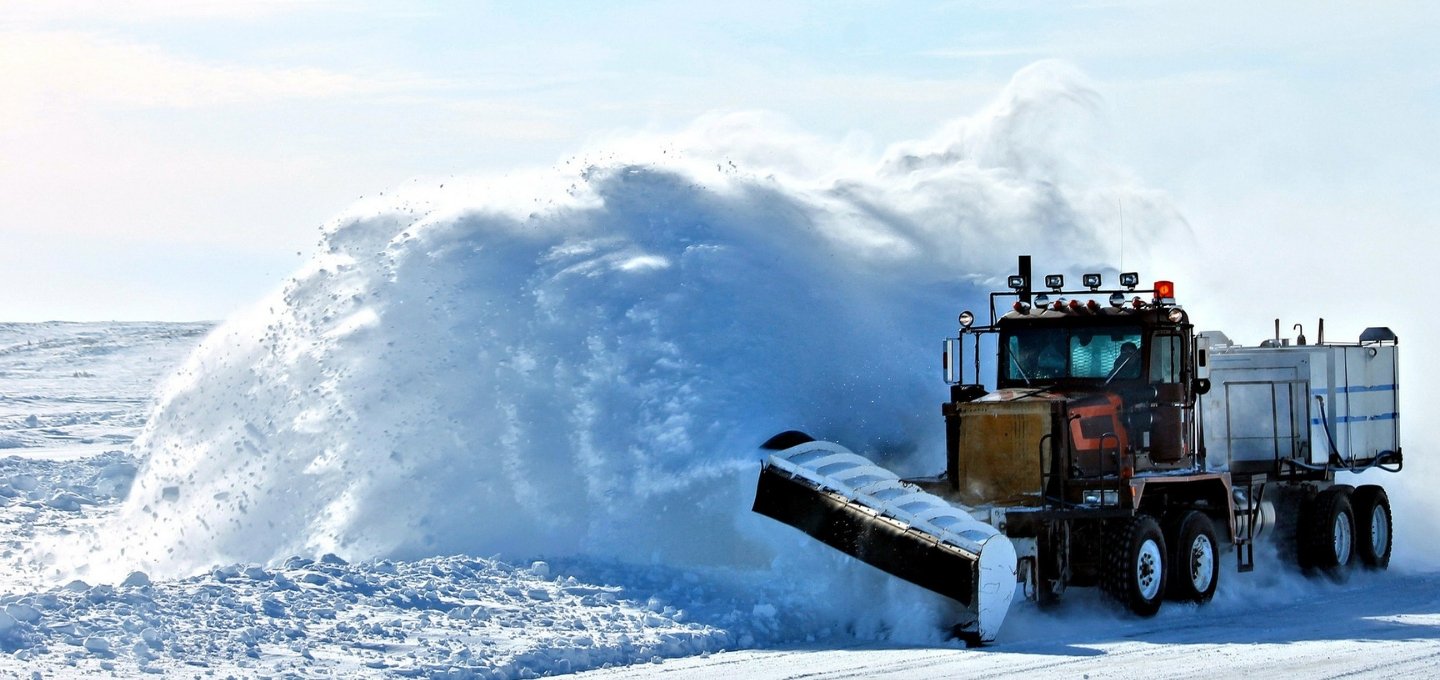Notre Dame, Elevate Ventures see no slippery slope in Frost Control Systems investment
It was only appropriate that a freezing rain was coming down when Bryan Ritchie talked with TechPoint Index about an Elevate Ventures and Notre Dame IDEA Center-supported startup that’s on a mission to help cold-weather cities tackle icy road conditions with the sophistication of the nation’s largest airports.
The startup, Frost Control Systems, uses a complex system of monitors, infrared cameras and apps to gauge the temperature of streets and relay that information to a city’s Departments of Public Works officials, who use that data to determine the optimal time to apply salt when winter storms approach.
Notre Dame grad pioneers new market opportunity
Traditionally, DPW officials make salt application decisions based on air temperature. But there’s often a disparity between the temperature of the road and the air. Applying salt when the road temperature is too cold—as any Indiana motorist can tell you—renders the salt ineffective. And that can result in deadly road conditions. Sophisticated temperature sensors exist and are used by major airports to ensure runway safety, but most cities can’t afford them.
Until now.
“One of the things we really liked was that it was something that was not only cool technology, it was something that was really helping the community and saving money,” said Ritchie, who serves as Notre Dame’s vice president and associate provost for innovation and leads the IDEA Center. “It seems like a triple-win, bottom-line kind of deal.”
Frost Control Systems is the brainchild of 23-year-old Brad Tener, a Californian-turned-Hoosier and Notre Dame graduate who credits the Notre Dame IDEA Center, private venture development organization Elevate Ventures and community mentors for turning what was a side hustle into a promising venture. His system is already working in five cities on a trial basis. In the midst of a fundraising effort, he has already earned a $20,000 “High Potential Startup” grant from Elevate Ventures’ Community Ideation Fund, which helps very early-stage companies develop their product with an investment of $5,000-$20,000.
Tener was a civil engineering major at Notre Dame with experience in residential construction, electronics and developing algorithms and an interest in road and intelligent transportation system design. He had everything he needed to come up with the idea, build, install and run his company’s product.
What he didn’t have was business advice, risk-assessment experience and funding.
“I wouldn’t have been successful if it wasn’t for the help I received from the entire community,” he said. “Individual leaders in the community have been mentors since this started in 2016. Notre Dame and the IDEA Center put me in touch with more advisors than I can count.”

As many tech founders can attest, an important element of the successful startup formula is the finances to support not only the business, but also yourself. Tener was at a tipping point when he applied for the Elevate Ventures grant.
“I had taken the business to a point where we had revenue. The product was developed, in the field, and working better than we ever could have hoped,” he said. “But, I’m a college student. Just like everyone else, I have student loans, and much less in the bank than you’d think plausible to live off of.”
He wanted to devote full-time work to the new venture, but with such a young company that was still building a revenue base, he needed other means of financial support. “The $20,000 grant was exactly what I needed to get from August to December,” Tener said. “Without it, this business likely wouldn’t exist short of being a side hustle to improve the community.”
Frost Control Systems well-positioned for strong future growth
Frost Control Systems has installed pilot projects in South Bend, Lincoln, Neb., and the Michigan cities of Grand Rapids, Battle Creek and Wyoming. While Tener says that some don’t see his company as a “high-potential startup” given the municipal markets he’s targeting, he notes that Frost Control Systems is in a lucrative competitive position. “We are very lucky to be first to enter the municipal industry for this technology, and able to do it without worrying about competition from those that sell similar systems for highways and airports,” he said. “As such, we are able to grow very rapidly and profitably with traditional investment.”
Tener is currently hiring for a few key positions and preparing to scale the company. “Manufacturing, locally here in Indiana, is going to be completed by June, and installs done by October. This year will be a year of truth to see if all of our trials and backlog of interested cities can result in full systems during a normal sales cycle,” he said.
Ritchie is optimistic about Frost Control Systems, which is one of the first start-up to emerge from the IDEA Center. The Center will remain supportive but will now take on an investor role. And it will likely point to Frost as an example of an ecosystem so promising it was named a nominee for the Rising Tech City Mira Award.
“Hopefully we’ll see a lot more of (companies like Frost Control Systems) as we build the ecosystem in the South Bend-Elkhart area,” he said.
Discover more about the application process for the Elevate Ventures Community Ideation Fund.




